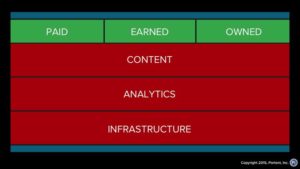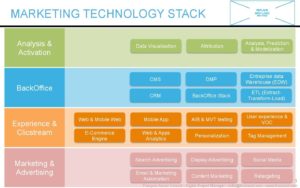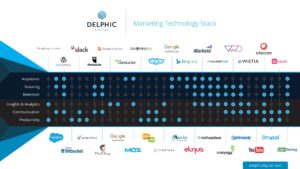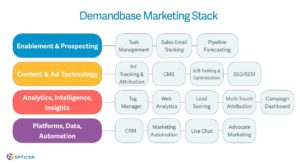- April 17, 2015
- Posted by: Nmcuong.91
- Category: Thoughts

What does the full stack term mean?
Before talking about the term “full stack marketer”, we need to understand what the full stack means and what the stack is in marketing. The “full stack”, derived from the full stack developer, is a programming term for programmers with broad knowledge and skills to handle a variety of tasks for a given purpose (web development, software development, mobile application development), not just specifically focusing on only one specility.

For example, a programmer who is considered a full stack (web) developer needs to have the knowledge of:
– HTML / CSS or Javascript to be able to solve the front-end issues
– Back-end knowledge with one (or more languages) such as nod.js, Ruby, Python, Java, PHP, etc.
– Knowledge of database & amp; web storage
– HTTP and REST transport modes
– Web application structure
– GIT and Github
– Basic algorithms and data structures
… and other knowledge depending on the industry you are working in. For example, the full stack developer for mobile applications will need to know more about Ionic / Electron / NativeScript, etc.
What is stack in marketing?
So now we can understand the stack is a set of skills needed to do the job. What is the stack in marketing? Talking about stack, there are many different ways to divide it based on the view (as well as the marketing model). Here are some typical marketing stacks (attached). Some marketing stacks will be classified according to skill sets, some stacks will follow the task, some will be stacked by tools, and so on.
- Marketing Stack 1
- Marketing Stack 2
- Marketing Stack 3
- Marketing Stack 4
What is a full stack marketer?
Each element in the marketing stack is called a “stack,” and in order to be called a full stack marketer, the person has to have the real knowledge and experience with all the stacks. For example, with the (digital) marketing stack in the first image attached, to be called a full stack digital marketer, you must have the basic knowledge of:
– Infrastructure including website, hosting, domain, CRM system, HTML / CSS, Javascript, even PHP or query to access database data, etc. And depending on the job you may have to know about the CRM, ERP or POS system of your company.
– Analytics including understanding and knowing how to use analytics tools (such as Google Analytics), how to install, how to extract data, and based on those data to provide relevant analysis.
– Content including being familiar with the content types of the web, video, social, ads, etc., can provide content orientation on different platforms, and being able to implement is even better. You also have to understand the paid, own, earned channels to be able to convey the content you create in the most effective way. This includes being fluent in advertising channels .
If you can master all the knowledge and experience of the three stacks above, then you can consider yourself a full stack marketer. However, in different arrays and businesses, it may require different expertises. For example, if you are marketing for a game business, then your knowledge will require some special “stacks” such as the ability to run ads with the goal of app install, analyzing data from mobile app usage and user behavior on mobile …
Is there really a full stack marketer?
With this issue there will always be two stream of opinions:
1. There is no full stack marketer: One can’t be good at all things, he can only be specialized in a few of the relevant tasks and if he wants to be good, he only can focus on the field for to gain deeper expertise.
2. The full stack is a trend: If you have knowledge of all the different fields, you will be able to have a broader perspective, and better performance. And at the same time a person who owns many knowledge stacks is a demanding trend today.
Personally, every opinion has its own reasons and indeed if you want to become a specialist (focusing on growing knowledge of a field or a branch) or become a full stack (deviding your knowledge equally in different fields), either of it is fine. The market is huge and the demand is varied, there will always be room for people with different skills. HOWEVER, people with broader and more general knowledge are often those who are able to be upgraded and promoted to higher positions because a characteristic of a manager is to have a holistic view.




